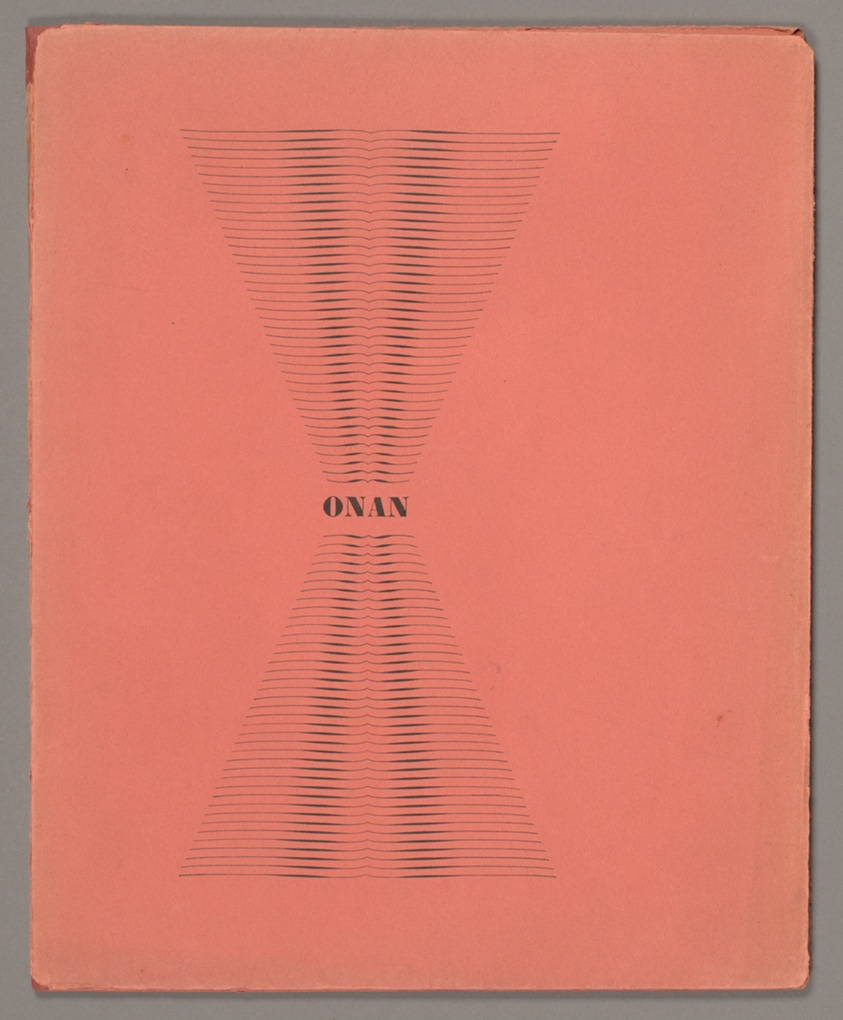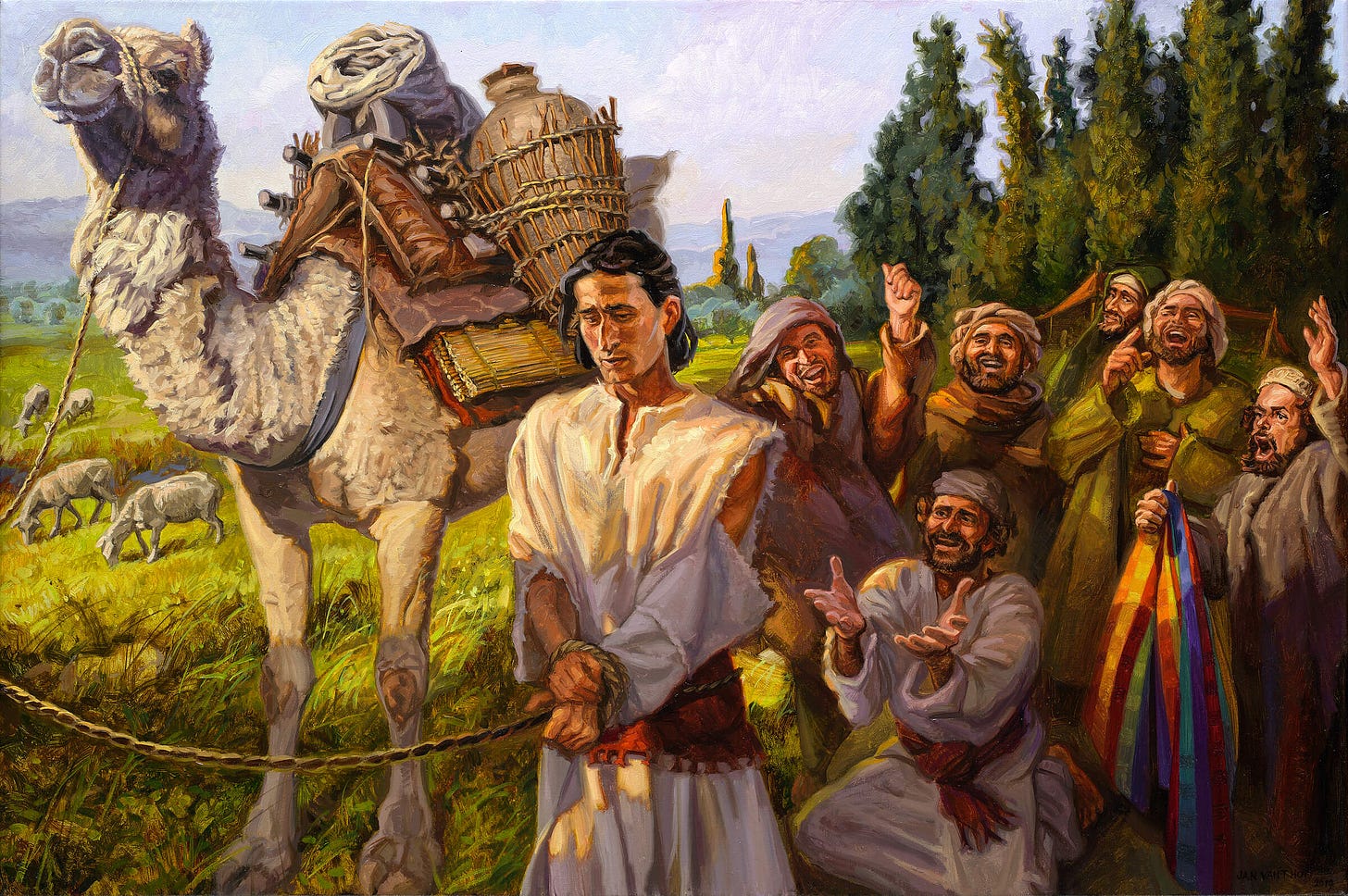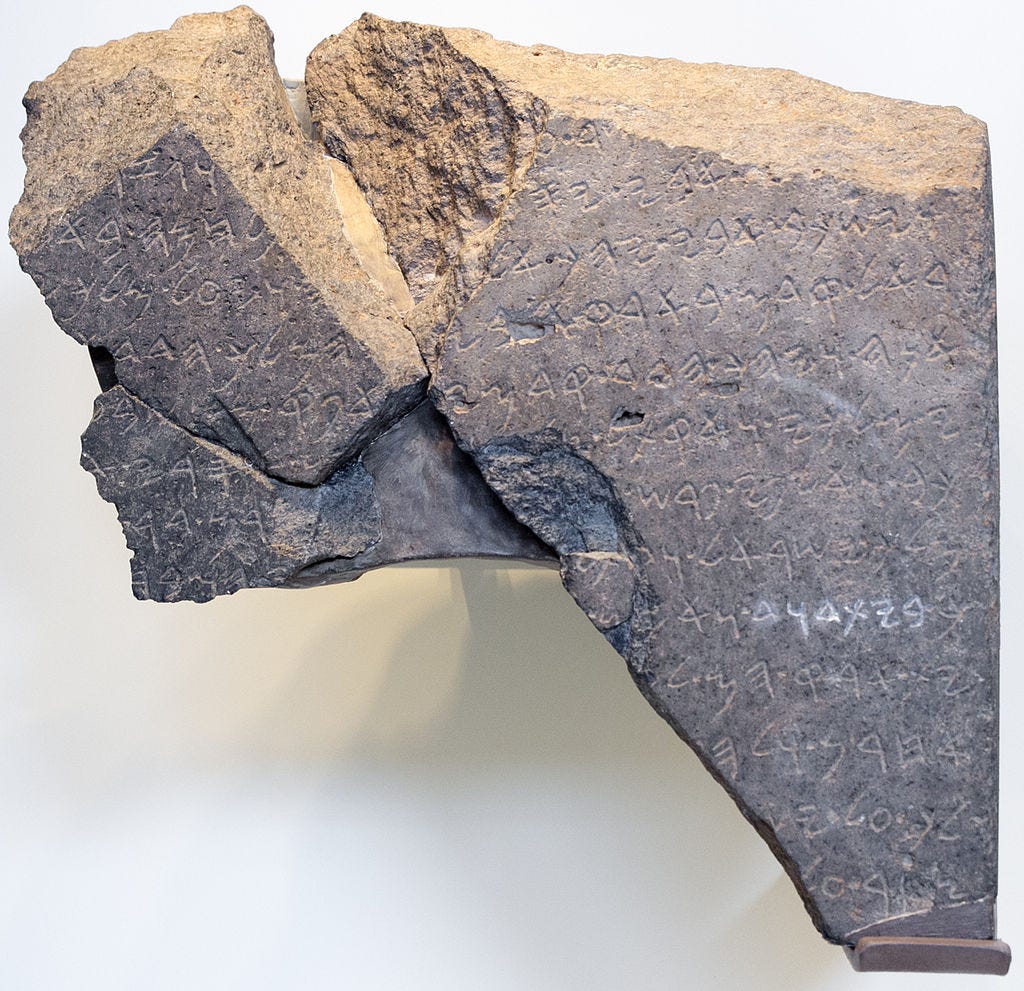Well, it's almost Passover, and that means it's also almost Easter, and today I've got a story for you that is...well, tangentially related to Jesus. But it's also a weirdly sexual tale, and this series is all about Biblical stories that make you go ehhhhh and ewwww. And the story of Tamar and Yehudah is guaranteed to make you do just that.
So, grab your matzas, clutch your cross, Ramadan mubarak, we’ve got a twisted story to tell so let's dive right in.

Yehudah was a son of Jacob, and he married a Canaanite woman named Shua. They had three sons.
The first was Er, but Er died leaving behind his wife, Tamar, and no kids. This is sad, though Er was apparently not a great guy—anyway, he died. Because there were no children from the marriage, Er's death set in motion a funny little rule that was widespread in the Biblical world. The rule said that, if your brother dies without kids, YOU have to marry his wife. It’s YOUR job to impregnate your sister-in-law.
Yeah, take a second to digest the implications of that, you creeps.
Back to the Bible: Yehudah's second oldest son was Onan. You may have heard of him, as he’s been enshrined in the words "onanism," "onanistic," "onanist." He is our culture's patron saint of self-pleasure, and now he gets a shot at Tamar (so to speak).
Onan doesn't like the idea of marrying his brother's widow. Well, that's too bad; Daddy says he has to. But Onan knows what’s up. Onan knows that if he knocks up Tamar the kid won't be part of his clan. That was the other part of the marry-your-dead-brother's-wife rule—any offspring is part of the late brother's flock, and their labor would help support the widow. No thanks!

Onan decides to take matters into his own hands (so to speak!) and refuses to finish (SO TO SPEAK) the job he has been tasked with, even while sleeping with Tamar. No matter your feelings on masturbation, that is not very nice.
Wouldn't you know it, a few months later, Onan drops dead. And, after the requisite period of mourning, Yehudah is back where he started, with Tamar, expectant, standing outside his tent.
A bit now about Yehudah. His father's fourth son, he should have played only incidental roles in his family’s great tales. But he seemed destined for more. It's Yehudah who spots a caravan of merchants off in the distance, and suggests to his brothers that they could earn a few shekels from selling Joseph to them. Much later, he stands up to a powerful Egyptian magistrate who (it turns out!) is their brother Joseph in royal garb. Which is to say, Yehudah is a natural-born leader with a habit of getting things badly wrong.

Yehudah calls Tamar into his tent. They are all alone. He takes her in slowly, looks her up and down, maybe feels something, but pushes it away. Finally, he speaks.
I am very sorry about the death of your second husband, he says. Onan was an idiot, but he was my son, and I loved him.
Yes, Tamar says.
My boys seem to have a habit of dropping dead on you. Awfully strange, wouldn't you agree?
Tamar doesn't know how to reply. Yehudah looks at Tamar.
As you know, Yehudah continues, I've got another son. And I’m sure you’re eager to get your hands on him. But he’s not quite ready to settle down, if you see what I mean. How about you go home to wherever it is you came from, and I’ll call when we're ready for the next marriage?
This is not how it’s supposed to work, but what choice does Tamar have? Embarrassed and ashamed, she returns home to live life as a rejected widow, unable to remarry. But then she remembers how Yehudah looked at her when she stood in his tent, and, in the very back of her mind, an idea on how to get her life back begins to take form.
***
About a year later, Yehudah’s beloved wife, the mother of his three sons, dies. Yehudah mourns her death, and comes out the other side not entirely himself—lonely and a little bit unsure of himself.
A friend comes to visit, and they decide to check out some of Yehudah's flocks down in Timnah. It's sheapshearing season, maybe that’s a good way to cheer a buddy up, maybe they play catch with the wool or whatever. Timnah, coincidentally, is not far from where Tamar's family resides.
Yehudah is a major figure, a wealthy man. Reports arrive that he is on his way to their neck of the woods, and Tamar realizes that this is it—it's now or never.
Look, I don't know what prostitutes wore a few thousand years ago. Sexy cloaks? Slightly tighter frocks? Whatever it is that members of humanity's oldest profession wore to make it clear exactly what they do, Tamar does that, and then she puts on a veil, and then she goes out to the trashiest place for a whore to squat—a place along the path right by the city gates, the ancient equivalent of a Motel 6. And she waits.
Yehudah and his pal pass by, and the getup works—he can’t stop looking at the harlot.
His friend is, like, dude. You are patriarch of a major Israelite clan. You can do better than this.
Yehudah doesn't disagree, but also he doesn't care.
He approaches the prostitute, and does he have any idea who is behind the veil? Given what happens next, I suppose he doesn't, but I’m sure some part of him recognizes her, finds her voice eerily familiar, maybe remembers her smell.
When all is done, the harlot speaks to him. There is the issue of payment, she says.
He says, I'm a wealthy man. I'll send you a very nice goat.
The prostitute sighs. Like I haven't heard that one before.
I'm good for the goat, the man grumbles. What do you need, collateral? Take my signet and staff, I'll send the goat when I get to my flock. Excuse me, my flocks.
Yehudah gets dressed, hits the road with his friend, and continues on to Timnah.
When he gets to the flock, he sends his friend back to pay the whore. But the friend can't find her anywhere. He searches all over, he even goes into town and asks the council if their town prostitute has been seen lately.
They say to him, town prostitute? There hasn't been a prostitute here…IN THIRTY YEARS!!!!!!
The friend returns with the bad news. Yehudah shrugs and says, fuck it, let the whore keep the ring. And he goes back to shearing sheep, while, on the other side of town, Tamar returns home to her family, smiling to herself for the first time in a very, very long time.
***
Three months later or so, Tamar is visibly pregnant. She is unmarried but beholden to Yehudah's clan, and she slept with someone else—that’s betrayal. There is a punishment for women who do this, and that punishment is death.
Guess who the judge is?
I imagine it like this. Yehudah sentences her and then walks away, even as Tamar shouts his name. She is restrained, but rips herself free for long enough to produce something from beneath her cloak. Show this to Yehudah, she says. He'll know exactly what it means.
Later, after Tamar has been taken away, one of the men enters Yehudah's tent. You'll get a kick out of this, he says, but the girl thought she could bribe you or something. She made quite a scene, she wanted us to give you these, and he hands the signet to Yehudah.
Yehudah sees this and dashes out of the tent.
He gets there in time to stop the execution. People are eager to know why the show’s over just when it was getting good.
Remarkably, he tells them.
He admits that he sent her away when he shouldn’t have, and he tells them that he didn’t know it was her when he did it, and that the child is his. He doesn’t marry her or anything as creepy as that, but he also doesn’t send her away. She stays with the clan. He tries to make good.
***
A few months later, Tamar gives birth to a healthy set of twins—boys. Given how the boys in this family behave, you’d be forgiven for expecting the worse, but the text tells us nothing about them, and no news is good news.
One of those boys is named Perez. Perez begets Hezron, and Hezron begets Ram, and Ram does some begetting too, and that kid also begets, and it’s practically Begettingsville around here, so much begetting that we’re absolutely sick of it.
And at the very end of all the begetting, as far the Jewish people is concerned, comes David, King of Israel. Somehow this is supposed to be ennobling rather than humiliating, that the anointed king comes from a would-be harlot and a man who slept with his son’s widow and, eventually, even was forgiven for it.
And in recognition of Easter, I will briefly concede that this is Jesus’ line as well.






I can't believe Andrew Lloyd Weber didn't make a musical of this as well. It practically writes itself. "Yes Yes, Yehudah!" "The Sun will Come Out, Tamar." And Onan's big production number, "Seed Spilling Shpilkis."
“The Aristocrats!”